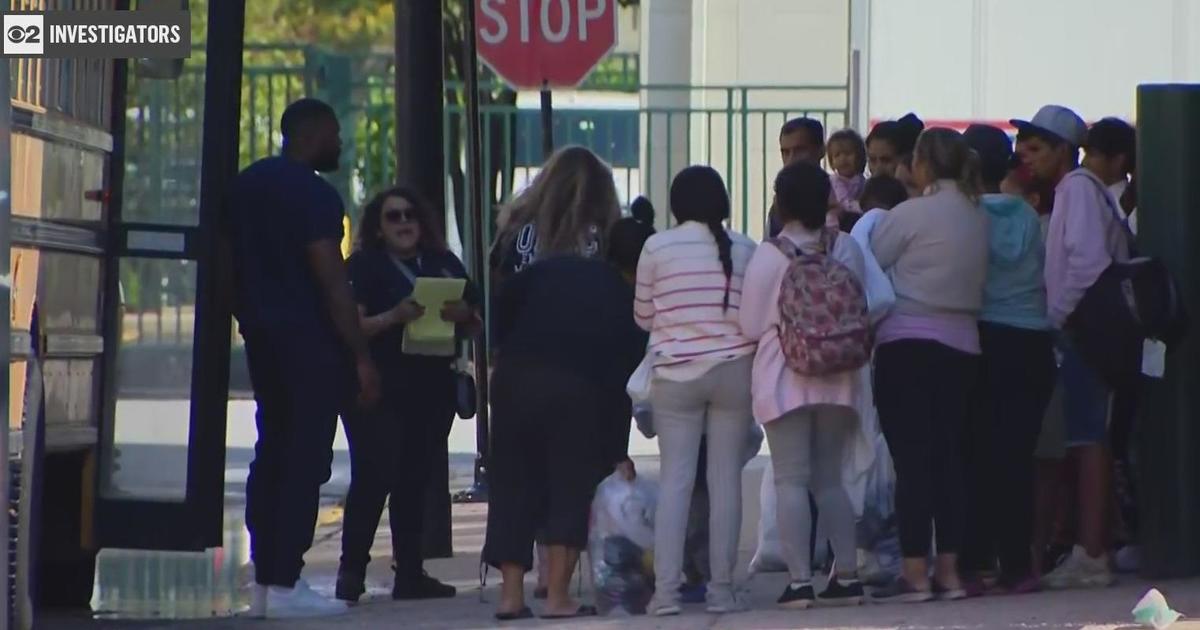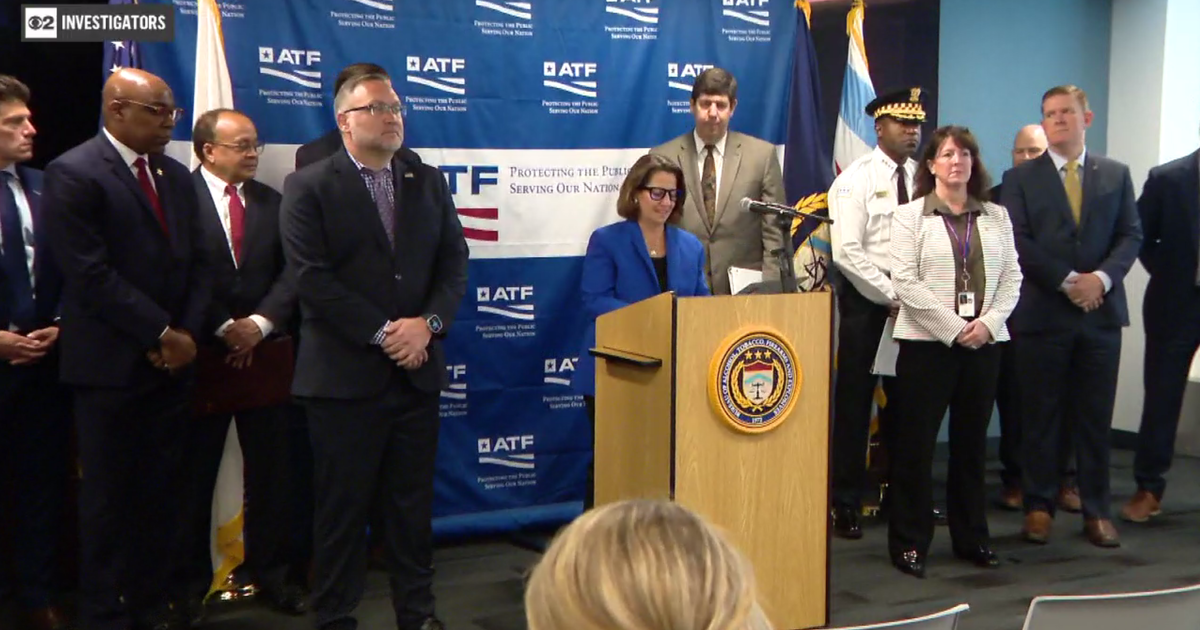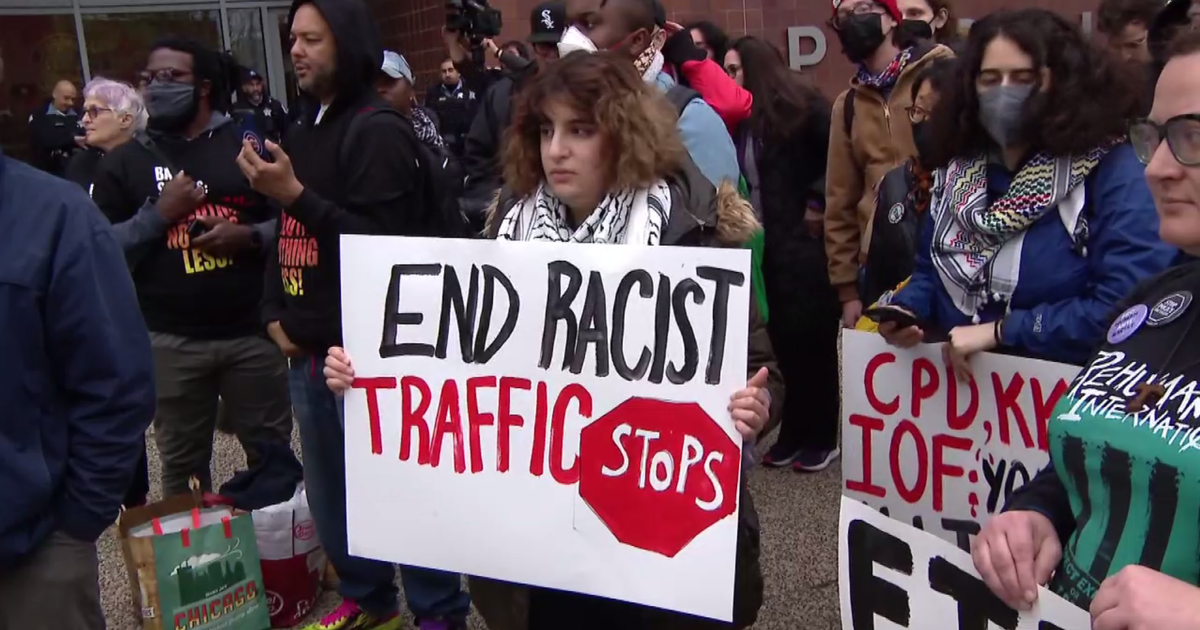You Paid For It: City Inspector General Sharply Criticizes Juvenile Intervention Program Co-Run By Chicago Police
CHICAGO (CBS) -- An Inspector General's report issued Tuesday sharply criticized a juvenile intervention program run as a partnership between Chicago Police and the city's Department of Family and Support Services.
The program costs $5 million in taxpayer money every year.
The Juvenile Intervention and Support Center (JISC) has been in operation since March 2006, according to the report. It was set up using one-time funds from a federal grant to divert youth arrested for low-level offenses away from the juvenile justice system – instead sending them into social service case management.
The goal is to reduce arrests, decrease justice system costs, increase education and employment, and improve health and family life.
The idea behind the program stems from a belief that adolescents have difficulty appreciating the consequences of their actions and thus engage in risky and impulsive behavior. Such impulsivity often ceases as the adolescents' brains develop, but if there's even low-level criminal activity involved with it, their lives can be ruined, the report explained.
The Office of the Inspector General conducted an audit to determine whether the program is operating according to best practices for youth diversion and is a success at reducing youth recidivism.
The report's conclusion was that because the record-keeping for the program has been so poor, there is no way even to know whether it has been a success. The city cannot figure out whether it's benefiting the more than 3,000 youth it processes annually or making matters worse, nor whether the $5 million the city spends on it each year is worth it.
The report said the JISC case management agency did not keep proper records, while Chicago Police destroyed youth screening records without approval.
The poor cooperation between police and the DFSS in running the JISC has also hampered its mission, the report said. The Inspector General's office noted that JISC has no charter, memorandum of understanding, or governing board to establish formal goals and accountability measures – and what has actually happened is that the JISC and Chicago Police do not share important program data with each other.
As to whether the JISC is using best practices for youth intervention, the Inspector General's office said it is not. In fact, the report said, the program creates a negative experience for the youth who go through it and does not encourage success.
"It really documents what has been consistently documented through the years, that this does not follow best practice," said Elizabeth Clarke, the founder and president of the Juvenile Justice Initiative.
Clarke spoke to CBS 2's Suzanne Le Mignot via Skype. Her Evanston based nonprofit has done policy advocacy for juveniles in Illinois for two decades.
"It is traumatic practices that they're using there," Clarke said.
Ethical guidelines about youth diversion programs always say they should be "trauma-informed," that is, sensitive to youth who have suffered trauma, the report said. The JISC is not, according to the report. It is housed in a former police station at 3900 S. California Ave. that still operates more like a plain old police station than a youth diversion site, the report said.
Inspector General's office representatives toured the building and found that young people who had been arrested were handcuffed to a rail. A JISC lieutenant said handcuffing the youth to a rail was a standard practice, and on average, a young person would be in that position for 35 to 40 minutes during processing.
Chicago Police also said youth are handcuffed when they're taken to the JISC just like anyone police arrest and take to a station, and the purpose of handcuffing to the rail is to keep them from escaping because the front door is not locked.
A focus on security and restraint is also noticeable elsewhere in the JISC facility, the report said. The youth are later taken to a locked room on the second floor that has nothing in it but plastic seating and a stationary rail – and is not especially different from a police station lockup, the report said.
This setup is present despite the fact that the JISC only serves lower-risk youth arrestees who and screens out anyone who is arrested for a more serious offense, the report said.
Such a setting can trigger young people and worsen their traumatic stress and thus increase the likelihood of recidivism – the very opposite of the JISC's purpose, the report said. At particular risk for being retraumatized are young people with developmental disabilities, mental health issues, past histories of trauma or victimization, and substance abuse problems, the report said.
Meanwhile, it happens that the onetime Brighton Park District station where the program is held was once overseen by disgraced Chicago Police Cmdr. Jon Burge.
"This facility has a terrible legacy of torture and trauma for our communities – particularly our communities of color and youth in the city," Clarke said. "It's a terrible location for it."
In addition, the report noted that the Chicago Police Department does not provide any special training to its JISC staff, and selects them just on seniority rather than considering whether they experience working with young people.
The report went on to call the diversion of JISC arrestees from further involvement in the criminal justice system "inconsistent and inequitable" – with social services being recommended to youth who did not need them in 34.7 percent of cases.
Further, the report said there are cases many where police override screening recommendations – and in such instances, for every youth the program diverted from having more involvement with the juvenile justice system, it ended up sending two deeper in.
The Inspector General's office advised that JISC improve its record-keeping, and also reform its operation by engaging with experts, community organizations, and criminal justice system stakeholders.
The CPD and the DFSS mostly agreed with the recommendations and said they have already begun corrective actions – including a planned redesign of the JISC facility. The organizations have also engaged the University of Chicago Crime Lab to assist with data tracking and evaluation.
The Mayor's office has set up an advisory council to oversee reform efforts, the report said.
CBS 2 web producer Adam Harrington contributed to this report.
[wufoo username="cbslocalcorp" formhash="xmtx8od1bvaju1" autoresize="true" height="1008" header="show" ssl="true"]



